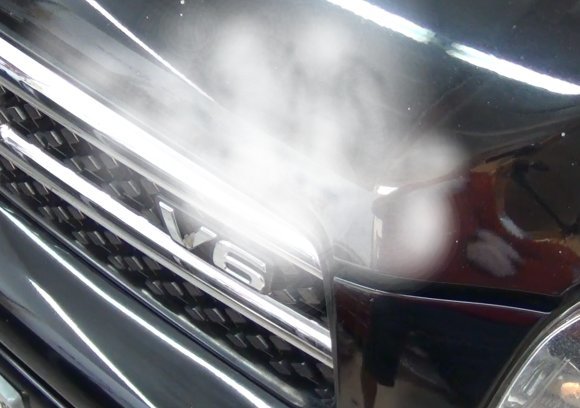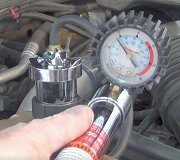If I may add a tidbit of value, your observation of no water in the oil is of no value. Cylinder head gaskets have holes in them corresponding to pressurized oil passages, drain back oil passages, coolant passages, air passages, and cylinders. By far the most common place for a head gasket to leak is between the cylinder and a coolant passage. Cylinders develop really high pressures. Coolant becomes acidic and corrodes the gasket material. This is a much bigger problem on GM cars, especially those that use the red Dex-Cool coolant, and is why they have so much trouble with leaking heater cores and radiators. That results in combustion gases being forced into the cooling system, and / or coolant being sucked into the cylinder and going out the tail pipe. Way down on the list symptoms is oil and coolant mixing, especially since both fluids are close to the same pressures, compared to the extremely high cylinder pressure. If you examine 500 leaking head gaskets, you might find one where the oil and coolant are mixing.
Your mechanic can perform a quick chemical test at the coolant reservoir for a leaking head gasket. That involves drawing air, while the engine is running, from the reservoir through a glass cylinder with two chambers partially-filled with a special dark blue liquid. If combustion gases are present, the liquid will turn bright yellow.
Another test involves adding a small bottle of dark purple dye to the coolant, then you check a day or two later with a black light. The dye will show up as a bright yellow stain that you can follow back to the source. If the head gasket is leaking, you'll find the dye inside the tail pipe. Auto parts stores will have the correct dye for the fluid being tested, and those that rent or borrow tools will usually have a black light.
Based on your observation of an external coolant leak, it makes sense that HMAC300 is recommending a pressure test. That works best when the leak is fast enough that you can see the coolant running out, and where it is coming from. If the leak is too slow, the dye is the next-best alternative.
Wednesday, December 7th, 2016 AT 6:48 PM


